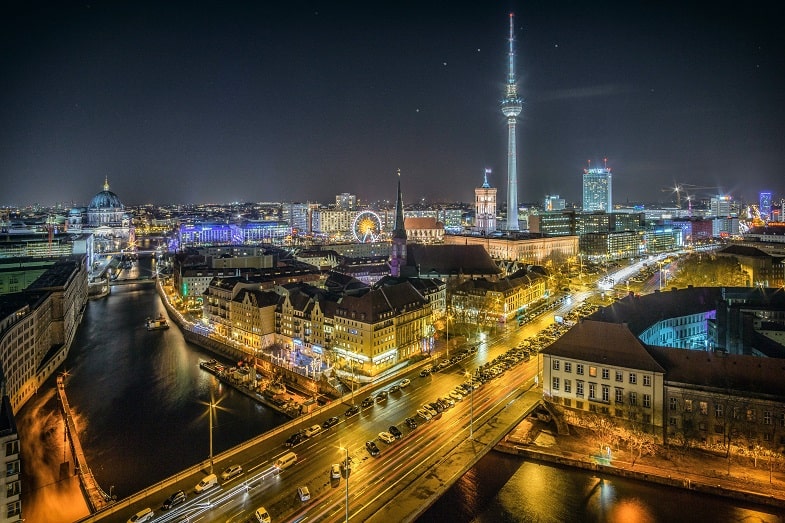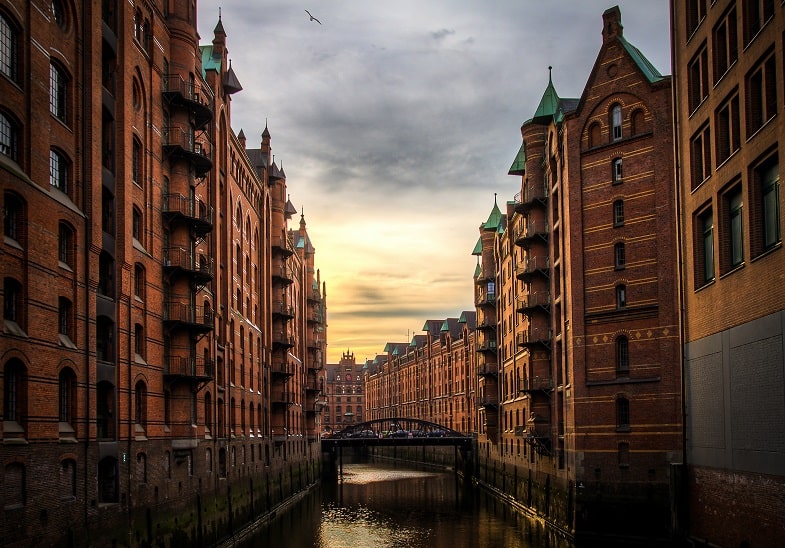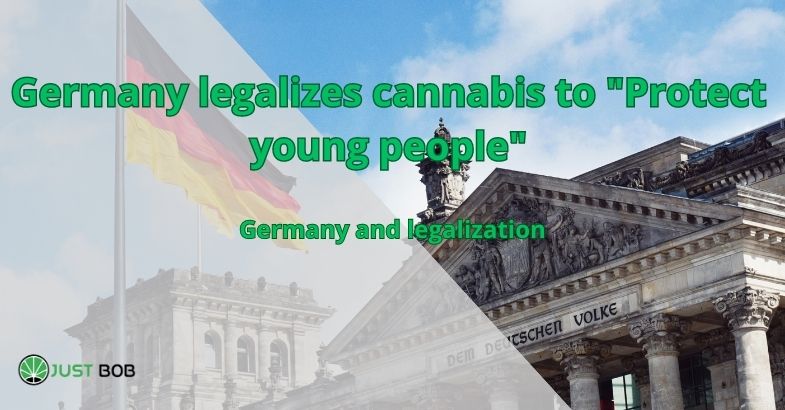Modified on: 15/04/2024
Germany and legalization
The government coalition in Germany has announced its intention to make hemp legal to control the “quality” of substances and fill the state coffers: a policy diametrically opposed to that of the French government.
It’s official: the most populous country in Europe intends to legalize recreational cannabis. The government coalition in Germany, composed of SPD (Social Democrats), Greens, and FDP (Liberals), announced that they reached an agreement on this matter in April 2023. This legalization would make Germany the second country in the European Union, after the Netherlands, to opt for controlled sales. In contrast, France is still far from this, limiting itself to the free trade of only CBD in all its forms and derivatives (CBD oil, CBD Weed, hashish, CBD extracts, and so on).
Germany has already less restrictive laws compared to many of its European neighbors, with the possibility in some cities, like Berlin, to reserve a few grams for personal consumption. In 2017, the use of cannabis for therapeutic purposes was also approved. The legalization of marijuana has been requested for many years by the Greens and the Liberals.
Public Health Issue
The proposal presented by the government coalition revolves around “the controlled distribution of cannabis to adults for consumption in authorized shops.” This small revolution “will allow quality control, prevent the trafficking of contaminated substances, and protect young people,” says the coalition around the Social Democrat Olaf Scholz.
In fact, street-sold cannabis is often cut with other substances like hair spray, sand, or even brix, a synthetic glue designed to artificially increase the weight of the weed. In 2018, the Berlin Cannabis Magazine analyzed the most important shops in the capital and obtained the alarming result that eight out of nine products were cut with other substances.
Health authorities are also alarmed by the spread of new synthetic cannabinoids with high THC content, which represent a health risk, especially for young people. The German University of Ulm observed almost eight times more cases of psychosis related to cannabis in 2019 compared to 2011 and found that the THC content of cannabis consumed in Germany had significantly increased during the same period.


A highly profitable market
Legalization would allow precise control of the composition of the product consumed. Over-the-counter cannabis could also be a fortune for the state coffers and turn into “green gold,” as in Canada or in American states that allow the recreational use of hemp and hashish.
A current study conducted by a research team from the Heinrich Heine University in Düsseldorf estimates that the public income resulting from cannabis legalization would be around 4.7 billion euros. A cannabis tax equal to that of tobacco or alcohol alone would yield 1.8 billion euros per year.
According to this study, which estimates that around 27,000 additional jobs would follow with legalization, even the prosecution of consumers and small traders could save about one billion euros. The cannabis ban costs taxpayers money every year “without positive effects,” says Georg Wurth, CEO of the German Cannabis Association. The future points of sale have not yet been defined. The Association of Pharmacists supports distribution in tobacco products, “coffeeshops”, and pharmacies.
Read also: CBD oil pain relief: the cost as of 2023 and how to buy it safely
Concerned Policemen and Addiction Experts
Legalization still has many opponents in Germany. The CDU spokesman in the fight against drugs accuses the coalition of conducting an “experiment on the health of our society and our young people.” “Should the state really earn money by endangering its citizens with addiction, permanent psychosis, and physical and mental suffering? I think it’s immoral.”
The police fear a “minimization of risks related to CBD consumption,” and addiction experts warn of possible effects on the mental health of young people and the risk of cancer. The coalition has promised to review the future law after four years.
Legalizing cannabis in Germany, the first state measure
Olaf Scholz, who took office on the 8th of December 2021, leads a political coalition composed of Greens, SPD, and Liberals of the FDP.
A surprising introduction: in power is a “traffic light” coalition with the Greens (green), the Liberals (yellow), and the Social Democrats (red) under the leadership of Olaf Scholz. One of the focal points of his political program concerns the legalization of CBD cannabis, which was officially discussed last April.
After the parliamentary elections, marked by a historic loss for Angela Merkel’s conservative party, the Social Democrat Olaf Scholz became the Chancellor of the first European economy with an unprecedented alliance, together with the Greens and the liberal FDP.


These two parties have three key tasks assigned: the Greens, in fact, deal with foreign affairs and the ministry for climate and economy, while the FDP is responsible for finances. The holders’ names are Annalena Baerbock for the Greens, who also ran for the Chancellorship, for diplomacy; Christian Lindner, the head of the FDP, for the stock exchange and co-president for the environment, while Robert Habeck, a philosophy graduate and successful writer, for the environment.
The three parties have signed a coalition “treaty” entitled “Have the courage to make further progress. Alliance for Freedom, Justice, and Sustainability,” which attributes high priority to environmental protection, particularly with a planned gradual elimination of coal by 2030 compared to the previous 2038. Following this, another measure was announced: their desire to legalize cannabis.
Another step after medical cannabis
Germany had given cannabis the green light for therapeutic use in 2017. The legalization is, therefore, one more step. “We are introducing the controlled distribution of cannabis to adults for consumption in authorized shops,” announced the government agreement presented by the three coalition parties. This little revolution in the country “will allow quality control, prevent the transmission of contaminated substances, and guarantee the protection of young people,” reporta the document, adding that “the social impact of the law” will be evaluated after four years. The new coalition of Social Democrats, Greens, and Liberals also wants to develop drug control operations to verify that it is not mixed with other substances.
Read also: THC for therapeutic use?
CBD cannabis in Germany
Another measure that the team in power in Germany is highly interested in, is returning to fiscal discipline, which is expected to be implemented by the end of 2023.
Meanwhile, you can already find and legally buy the best CBD flower on our store! This is the best way to fully enjoy the properties and benefits of cannabidiol for your body and mind!









